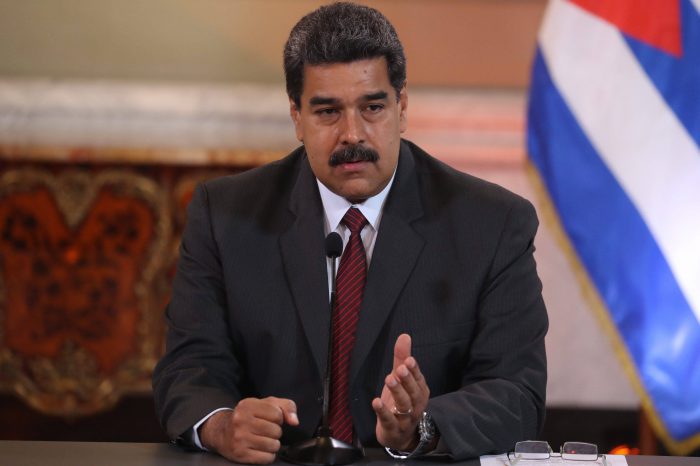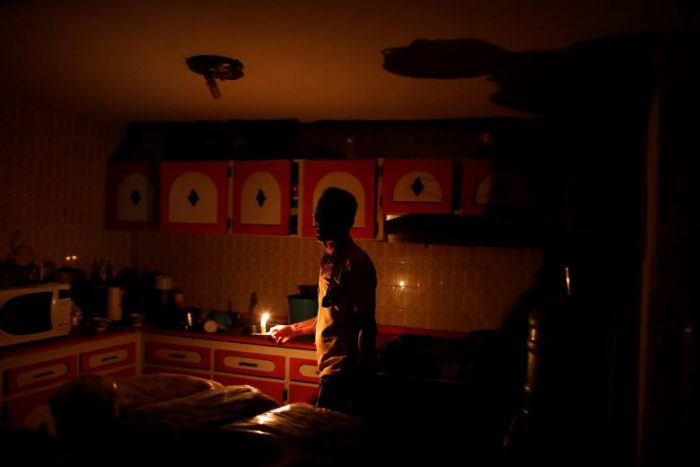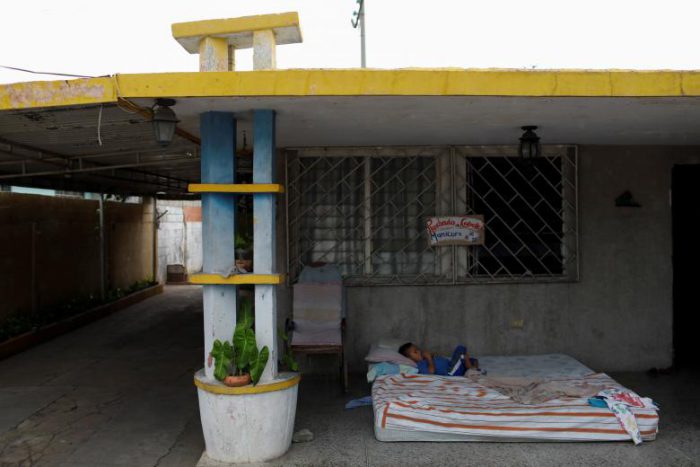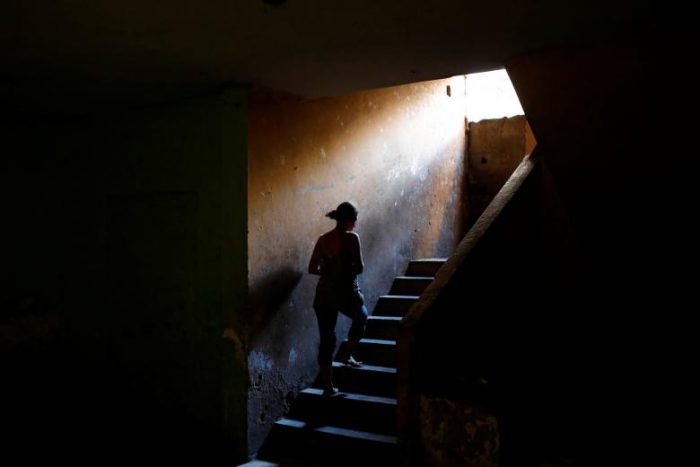Crippled by its economic woes and isolated by sanctions against its president, Venezuela is rapidly losing its grip on a key modern convenience: reliable electricity.

Rolling blackouts have become commonplace in rural parts of the country since March, when President Nicolas Maduro implemented them to curb the burden on Venezuela’s crumbling energy infrastructure.
But Maduro was caught off guard on Tuesday, when an unscheduled blackout threw the nation’s capital, Caracas, into chaos during a busy workday. Restaurants and banks were shuttered for several hours, and commuters were forced to walk home due to a blackout that also affected parts of neighbouring Miranda and Vargas states.
WATCH BELOW: Maduro wins Venezuela election amid outcry over vote

“This is terrible,” Caracas resident Nassari Parra told Reuters on Tuesday. The 50-year-old was waiting in a long lineup outside a closed bank at the time.
“I feel helpless because I want to go to work, but I am in this queue instead.”
Widespread outages are rare in Caracas, the nation’s capital city and seat of its government. But Tuesday’s blackout was the second power-related embarrassment in as many days for Nicolas Maduro. The lights went out at a key socialist party meeting on Monday night, just as Maduro’s party was voting to grant him greater powers.
Maduro called Monday’s isolated outage “sabotage.” Officials said the widespread blackout on Tuesday was caused by a downed power main in a remote national park.

But blackouts such as these have become all too commonplace in other parts of Venezuela, as the oil-rich nation limps through the fifth year of an economic crisis that has triggered poverty, malnutrition, hyperinflation and mass emigration.
Powerless

Get breaking National news
Many Venezuelans are struggling to adapt to the rolling blackouts, which have severely impacted daily life since they were implemented in March.
In the country’s largest, state, Zulia, residents have become accustomed to buying their food each day, because they can’t trust their refrigerators to remain powered for very long. Many sleep outside because there is no air conditioning.
“I never thought I would have to go through this,” bakery worker Cindy Morales, 36, told Reuters.
“I don’t have any food, I don’t have power. I don’t have money.”
Zulia is the historic heart of Venezuela’s energy industry and was known for decades of opulent wealth before the economic crisis plunged its 3.7 million residents into a life of semi-darkness.
Now, they go several hours each day without electricity – sometimes up to 24 hours.

The six state-owned power stations throughout Zulia have plenty of oil to generate electricity but a lack of maintenance and spare parts causes frequent breakdowns, leaving the plants running at 20 per cent capacity, said Angel Navas, the president of the National Federation of Electrical Workers.
Energy Minister Luis Motta said in July that power cuts of up to eight hours a day would be the norm in Zulia while authorities developed a “stabilization” plan. He did not provide additional details and the Information Ministry did not respond to a Reuters request for comment. The state government also did not respond to a request for comment.

Outages are taking a toll on many businesses in Zulia.
Zulia used to produce 70 per cent of Venezuela’s milk and meat but without power to milk cows and keep meat from spoiling, the state’s production has fallen nearly in half, according to Venezuela’s National Federation of Ranchers.
Zulia’s proportion of Venezuela’s total oil production has also slipped over the past 10 years from 38 per cent to 25 per cent, figures from state oil company PDVSA show.
WATCH BELOW: Joshua Holt reunites with his family after two years in a Venezuelan jail

Maracaibo, Venezuela’s second-largest city, seems like a “ghost town,” said Fergus Walshe, head of a local business organization. He said businesses had shortened their operating hours due to the lack of power.
“Before, business activity here was booming,” he said.
Small businesses are also affected. In an industrial park in Maracaibo’s outskirts, 80 per cent of the 1,000 companies based there are affected by the power cuts, according to another business association in Zulia.
Sales at Americo Fernandez’ spare parts store are down 50 per cent because card readers, which are crucial because even the cheapest goods require unwieldy piles of banknotes, cannot be used during power cuts.
“I have had to improvise to stay afloat. I connect the car battery to the store so that the card readers can work,” Fernandez said during a power outage at his home, surrounded by candles.
— With files from Reuters and The Associated Press








Comments
Want to discuss? Please read our Commenting Policy first.